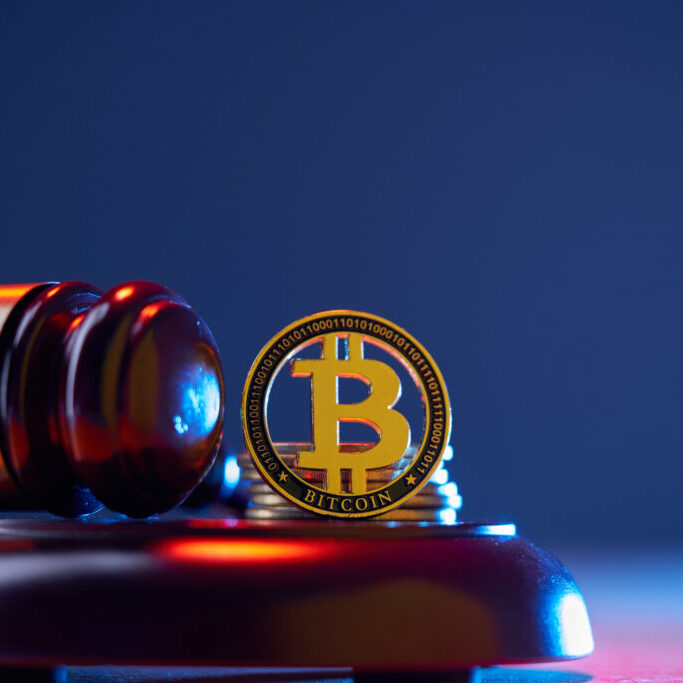Insights < BACK TO ALL INSIGHTS
Digital Assets as Commodities: Proposed Bill that Would Favor the CFTC as the Primary Regulator of Digital Assets Passed the House
Digital Assets as Commodities: Proposed Bill that Would Favor the CFTC as the Primary Regulator of Digital Assets Passed the House
By: Jordan Briggs
Despite being a frequent topic of discussion for government agencies and lawmakers, digital assets and their markets are still largely unregulated in the United States. This is due in part to the debate over which agency should be in control of creating an overarching regulatory framework for digital assets.
Instead of proposing new regulatory schemes to fit the innovative technology, the debate in the US generally hinges on how to fit digital assets into existing regulatory structures.[1] Accordingly, lawmakers and agencies focus on whether digital assets can be classed as “securities” or “commodities.”
Currently, both the SEC and CFTC agree that Bitcoin and Ethereum are commodities, but the line is not as clear as to other digital assets. To date, the Securities and Exchange Commission (“SEC”) has regulated digital assets through enforcement by bringing actions against digital assets and their trading platforms as unregulated securities or securities exchanges. Unsurprisingly, this approach is not popular in the digital asset market, and it has been criticized as hindering growth and innovation. However, if a digital asset is a commodity, then the Commodity Futures Trading Commission (“CFTC”), which is seen as the less strict regulator despite its own record number of digital asset enforcement cases last year,[2] would have jurisdiction.
The Financial Innovation and Technology for the 21st Century Act (“FIT 21”)[3] passed by the U.S. House of Representatives on May 22 hopes to clarify which agency has jurisdiction when. FIT 21 would amend the Securities Act of 1933 to clarify that a “’security’ does not include an investment contract asset,’ which is defined as “a fungible digital representation of value” that is decentralized and not otherwise a security.[4] It is this provision that would classify many digital assets as commodities—giving primary oversight to the CFTC.
While the SEC would retain important registration and enforcement powers, the agency’s digital asset rules would generally only apply to “restricted digital assets”—assets on a blockchain system which is nonfunctional or not certified as decentralized.[5] The bill would also give the SEC equal involvement in important rulemakings, such as defining “blockchain,” “digital asset,” and “digital commodity” and determining when a transaction may be “mixed” such that the CFTC and SEC should jointly regulate.[6] However, once the rules are established, the CFTC would retain regulatory and enforcement authority over the majority of the digital asset market. Accordingly, the CFTC would be required to create and enforce rules for the registering of digital commodity exchanges, brokers, and dealers[7]—which would include the majority of the current digital asset market.
This bill is not the first to be introduced in the House or Senate in an attempt to allocate digital asset regulation to a certain agency. For example, in 2022 Senator Warren sponsored a bill directing the Financial Crimes Enforcement Network (FinCEN) to establish anti-money laundering regulations pertaining to digital asset wallet providers and other money service businesses. Also in 2022, Senators Lummis and Gillibrand cosponsored a bill that proposed to allocate the majority of digital asset regulation to the CFTC. However, this is the first time a standalone bill regulating cryptocurrencies has come to, and passed, a vote in the House.[8]
The SEC’s current chair, Gary Gensler, who is credited as spearheading the SEC enforcement actions against digital assets, released a statement on the same day in strong opposition to FIT 21.[9] Gensler reiterates his belief that the SEC’s regulations already apply to digital assets. He also points to potential regulatory gaps he sees in the bill, such as the ability to self-certify as decentralized, that he believes could increase risk to American investors. While FIT 21 still has a long road to face before it could become law, the SEC continues to bring enforcement actions against digital assets and digital asset trading platforms as allegedly unregistered securities or securities exchanges,[10] even as the SEC faces judicial pushback on its claims.[11]
[1] While this approach may lead to the fastest implementation of a regulatory regime to address digital assets, it is an approach criticized by advocates for the digital asset space as restrictive and reductive. See Alexandra Damsker, “Crypto Can’t Be Regulated by Current US Regulators,” CoinDesk (Opinion), MARKETS INSIDER (May 30, 2024 at 12:22PM) (available at https://markets.businessinsider.com/news/currencies/why-it-matters-whether-the-cftc-versus-the-sec-regulates-crypto-1033437643).
[2] CFTC Releases FY 2023 Enforcement Results, Release No. 8822-23, CFTC (November 7, 2023) (available at https://www.cftc.gov/PressRoom/PressReleases/8822-23).
[3] Financial Innovation and Technology for the 21st Century Act, H.R. 4763, 118th Cong. (2024) (available at https://www.congress.gov/bill/118th-congress/house-bill/4763/text) (herein “FIT 21”).
[4] Id. at § 202.
[5] Id. at § 101; see id. at § 107.
[6] Id. at § 105.
[7] Id. at § 106.
[8] Nikhilish De, U.S. House Set to Vote for First Standalone Crypto Market Structure Bill, COINDESK, (Updated May 22, 2024 at 2:23 p.m.) (available at https://www.coindesk.com/policy/2024/05/22/us-house-set-to-vote-for-first-standalone-crypto-market-structure-bill/).
[9] Gary Gensler, Statement on the Financial Innovation and Technology for the 21st Century Act, SEC (May 22, 2024) (available at https://www.sec.gov/news/statement/gensler-21st-century-act-05222024).
[10] See “Crypto Assets and Cyber Enforcement Actions,” sec.gov, SEC (available at: https://www.sec.gov/spotlight/cybersecurity-enforcement-actions, last visited May 30, 2024) (showing the most recent enforcement action involving crypto assets as filed on April 24, 2024 against Geosyn Mining, LLC and its founders for “engaging in an unregistered and fraudulent securities offering).
[11]SEC v. Digital Licensing Inc., Case No. 2:23-cv-00482-RJS-DBP, (D. Utah May 28, 2024) ECF No. 312 (available at https://www.courtlistener.com/docket/67660309/312/securities-and-exchange-commission-v-digital-licensing/) (last visited May 31, 2024) (ordering the SEC to pay defendants’ costs as sanctions).





